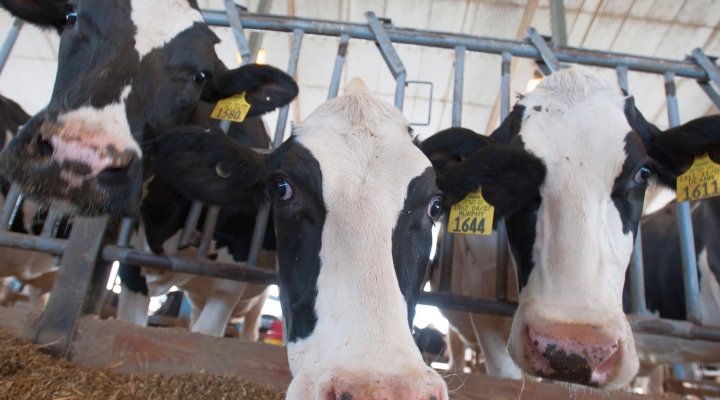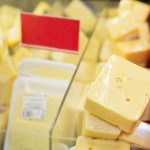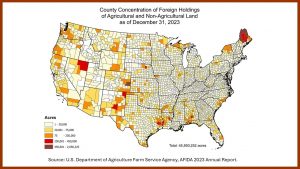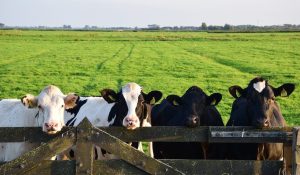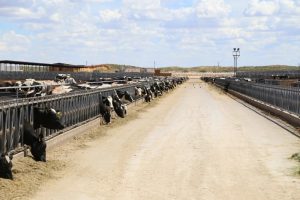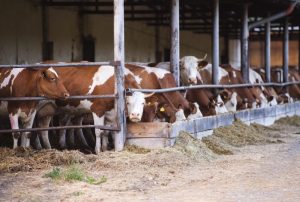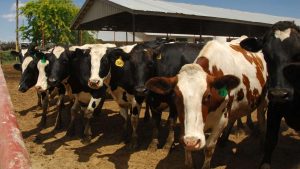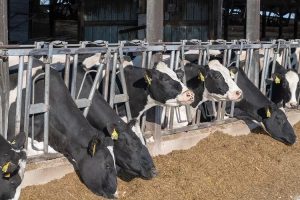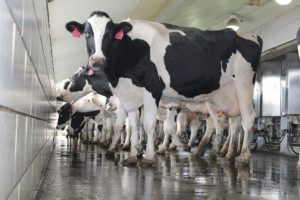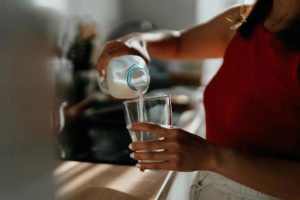
After three weeks of testing as required under a state monitoring program for bird flu in dairy cattle, animal health experts in Penn State’s College of Agricultural Sciences revealed that the university’s dairy herd has been certified as free of highly pathogenic avian influenza, or HPAI.
“The Penn State dairy herd has achieved ‘monitored herd’ status under the Pennsylvania Lactating Dairy Cow Health Monitoring Program,” said extension veterinarian Ernest Hovingh, clinical professor of veterinary and biomedical sciences and director of Penn State’s Animal Diagnostic Laboratory. “This means the herd has met all program requirements, including having multiple negative weekly test results for the HPAI virus.”
Penn State announced in July that it would test its herd in response to an outbreak of avian flu that has affected dairy cattle in more than a dozen states since March. As of Aug. 22, the virus had not been found in Pennsylvania dairy herds, according to the U.S. Department of Agriculture and state animal health authorities.
The Pennsylvania Department of Agriculture has encouraged all dairy farms in the state to enroll in its voluntary monitoring program, which is aimed at providing critical data on the status of dairy herds in Pennsylvania and detecting HPAI as quickly as possible should it arrive in the commonwealth.
All the tested bulk-tank milk samples, representing Penn State’s entire milking herd, were analyzed by the Animal Diagnostic Lab at Penn State — one of three labs in the state-funded Pennsylvania Animal Diagnostic Laboratory System — using a highly accurate test, according to Mathias Martins, head of the lab’s virology and molecular diagnostics sections.
“The real-time PCR test conducted to monitor HPAI in dairy is highly sensitive and specific, ensuring a high level of confidence in the laboratory results,” Martins said. “All samples tested were negative for HPAI over three consecutive weeks, confirming that the virus is not present in the Penn State dairy herd.”
Research Professor and Attending Veterinarian Jacob Werner, who oversees the health and well-being of all Penn State livestock, said the university’s cows have remained healthy, and no animals have been brought into the herd from other farms, which is thought to be a prime means of HPAI spread among herds. He pointed out that under the state monitoring program, weekly testing will continue, even though the risk of an introduced infection is extremely minimal.
“It’s a very simple process to take a sample and submit it to the lab,” Werner said, “and there’s no charge for the testing, since that’s covered by the USDA’s National Animal Health Laboratory Network.”
Hovingh and Werner noted that Penn State is pleased to be on the leading edge in having its dairy cattle tested for avian flu in support of state and national surveillance efforts.
“By testing our herd, we hope to have set an example for others to participate in the Lactating Dairy Cow Health Monitoring Program,” Hovingh said. “Besides confirming our expectation that our herd is free of avian flu, one of our goals was to inspire dairy producers across the state to test their herds too, so Pennsylvania animal health authorities can document that the state is in fact HPAI-free, as well as detect any outbreak that might occur and nip it in the bud before it has a chance to spread.”
–Chuck Gill, Penn State University
You can now read the most important #news on #eDairyNews #Whatsapp channels!!!
🇺🇸 eDairy News INGLÊS: https://whatsapp.com/channel/0029VaKsjzGDTkJyIN6hcP1K
